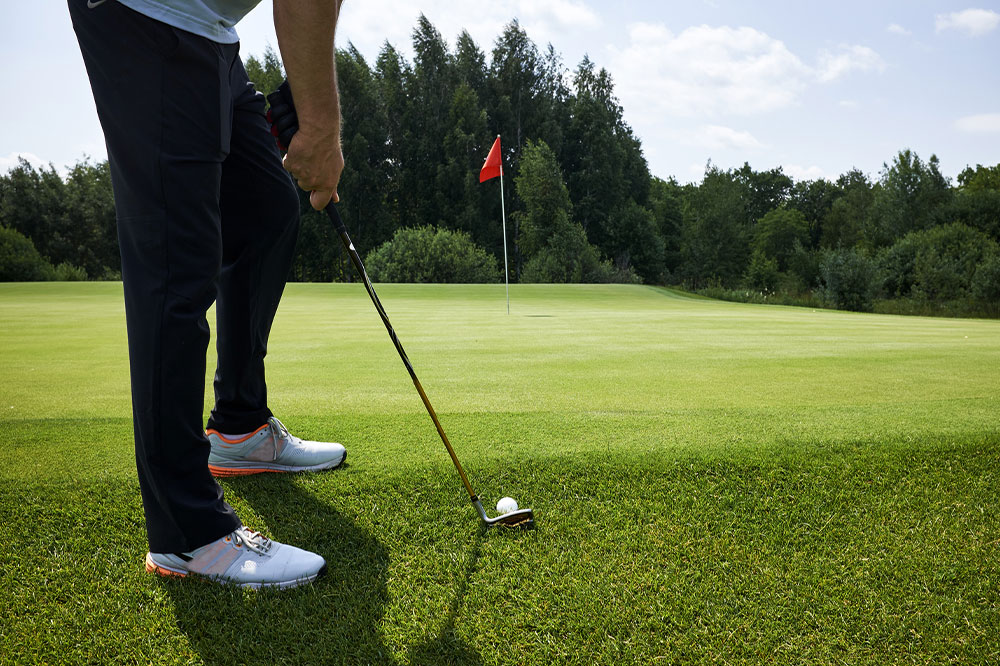9 common golf mistakes to avoid

Golf is one of the oldest sports; it was first mentioned in 1457 when King James II of Scotland banned citizens from playing it. Today, the United States Golf Association (USGA) officially governs the game rules in the country. Like any sport, it takes practice, skill, and patience to understand the rules and play the game. However, you must avoid common golf mistakes to master the game and have a good time on the course:
Using the wrong size and type of club
Ever wonder why you are not able to swing the golf club and hit the ball to perfection? Your technique is just one factor; to get that perfect hit and distance, it is also important to choose the right golf club for every shot. One of the most common mistakes is choosing the brand and type of club used by professional golfers. The pros know how to hit the ball and how using a premium club can make it easier for them to swing. But when you are starting out or have only been playing for a short period, you need to pick a club that suits your playing style, mastering your swing with the club. Practicing the technique improves speed, distance, and accuracy before you can switch to professional-grade equipment.
Choose a poor technique
Golf is a precision sport, and you cannot master every technique in a day. Rushing to learn the sport will only result in errors that affect your overall experience. One of the common golf mistakes that many players make on the course is forgetting to warm up. You cannot swing the club perfectly with tight muscles and an unsteady gait. So, loosen up first by playing a few simple shots and practicing without the ball. Once the action is perfected, you can focus on teeing off.
Using too much force
Swinging hard without aim and proper technique is a recipe for disaster on the golf course. Controlling the force and swing can help you get a close shot to the hole with a solid par. Swinging the club is also a fluid motion that you can better achieve by loosening the shoulders and relaxing the body. So, you should not grip the club too hard and always hit the ball with force.
Overlooking posture and alignment
The golf ball barely measures 1.68 inches in diameter, and you are hitting it with a long-ended stick with a sleek design. Unlike baseball, in which the bat has more surface area to work with, in golf, you have a limited margin of error. So, aligning yourself for the shot is just as important as adjusting the speed and accuracy. You can have a friend or fellow player spot you for alignment during the initial sessions and also while playing the game.
Not perfecting timing
Another big mistake is not paying attention to the timing of the shot. Even if you master the pose and swing, rushing it or hesitating while swinging the club will affect the accuracy, speed, and distance of the shot. If you have watched professional golfers play, you will notice their stance and swing align in a perfect position and complete in one fluid motion. So, enjoy watching pro golfers play in championships and prioritize timing the shot.
Ignoring etiquette
Golf is a sophisticated sport governed by rules and clear guidelines that you must follow to maintain proper decorum on the course. For example, it is a given that you must maintain absolute silence while other players are taking a shot. No distraction will be tolerated. It is expected of you to fix loose patches of grass and divots and even rake the bunkers after you have taken your shot. The player whose ball is farthest from the hole gets to play the shot first. There is a strict dress code calling for formals, caps, and shoes that golfers must follow.
Not following a routine
Golf is a precision sport. So, it is highly unlikely for anyone to just walk in, place the ball, and tee off without having a proper routine. To get the right speed, distance, and accuracy, you must learn to align, adjust the shot, and swing with perfection. This is possible only when you have developed a routine that works for you. Experts suggest creating a pre-shot routine that will prepare you for the actual shot. You must visualize where the ball can possibly land after playing the shot and make adjustments on the fly. It is better to take a few practice swings before hitting the ball. Only then, approach the shot with confidence and avoid doubting your skills. Confidence is key to avoiding retakes.
Pairing up with amateurs
Even if you are a beginner and do not know many players in the golfing community, it is never a great idea to pair up with amateurs who are clueless. Instead, channel your time and energy on pairing up with semi-pros and even pros by developing friendships or relationships. Only then will your game improve. Talented and consistent players are well-versed in the game and its etiquette. In fact, professional players will happily take you under their wing if they see you are worth their time and effort.
Expecting quick results without consistency
Practice is the only way to improve your game. Every golf course will have a different difficulty level, shot selection, and course layout. No two games are the same, even if you have played on the same course over and over again. Practicing your shots right from the first wide driver swing to the last putt shot will improve your game. Also, golf is a sport that requires considerable patience. You cannot learn the moves today and expect results tomorrow. Some days, you may have a great game, while other times, you will find room for improvement. The key is to be patient and enjoy the game.


